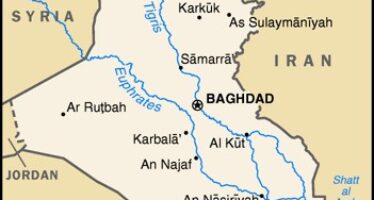Libya’s NTC accused of detainee abuse
![]()
Rights group Amnesty International says beatings and ill-treatment common among prisoners, few of whom see trial

NTC guards told rights-group researchers they beat prisoners in order to extract ‘confessions’ more quickly [AFP]
Libya’s National Transitional Council is holding about 2,500 detainees in the capital Tripoli alone, many of whom have been beaten and subject to other ill treatment and not given access to lawyers or judicial proceedings, according to report released by Amnesty International, the London-based human-rights watchdog.
Prisoners interviewed by the group’s researchers said they had been held for various durations, from few days to a few months and that with rare exception they had not been arrested under any kind of legal order.
Mistreatment most commonly involves beatings, particularly with wooden sticks or ropes on the feet in a practice known as falaga, and at least two guards in two different detention facilities told Amnesty International (AI) researchers they beat detainees in order to extract “confessions” more quickly.
Hassiba Hadj Sahraoui, AI’s deputy director for the Middle East and North Africa, said: “There is a real risk that without firm and immediate action, some patterns of the past might be repeated. Arbitrary arrest and torture were a hallmark of Colonel Gaddafi’s rule.
“We understand that the transitional authorities are facing many challenges, but if they do not make a clear break with the past now, they will effectively be sending out a message that treating detainees like this is to be tolerated in the new Libya.”
AI said that detainees appear to suffer beatings and torture particularly at the start of their detention, being given a “welcome” on arrival.
Blacks vulnerable
Sub-Saharan Africans suspected of being mercenaries made up between a third and a half of those detained, according to AI. Some have been released after no evidence was found to link them to fighting.
A man from Niger, initially presented to AI as a “mercenary and killer”, broke down and explained that he had “confessed” after being beaten nearly continuously for two days. He denied being involved in fighting.
AI says black Libyans – particularly from the Tawargha region, which was a base for Gaddafi forces in their efforts to regain control of Misrata – are also particularly vulnerable. Dozens of Tawarghans have been taken from their homes, checkpoints, and even hospitals.
AI also found that children were held together with adults and women detainees were supervised by male guards.
In meetings with AI in September, NTC officials acknowledged concerns over arbitrary detention and ill-treatment, and vowed to do more to get a grip on armed militias and ensure that all those detained enjoy equal protection of the law.
“The NTC has to act urgently to translate their public commitments into action, before such abuses become entrenched and stain the new Libya’s human rights record,” AI’s Sahraoui said.
“These detainees have in most cases been arrested without a warrant, beaten – and sometimes worse – on arrest and arrival in detention. They are vulnerable to abuse by armed militias who often act on their own initiative.
“The authorities cannot simply allow this to carry on because they are in a ‘transitional’ phase. These people must be allowed to defend themselves properly or be released.”
Related Articles
US Senate votes for Russian nuclear arms treaty
![]()
Obama’s key foreign policy legislation, a nuclear arms treaty with Russia, was passed with a Senate majority of 71 to
Kyrgyzstan Has Become an Ungovernable Country
![]()
‘A Completely Lawless Place’ Kyrgyzstan Has Become an Ungovernable CountryBy Erich Follath and Christian Neef in Osh, Kyrgyzstan AP In
Biden Demands Net No Progress on Iraq Govt
![]()
No Proposals Made for Next Coalition Govt Though it comes as little surprise given the past four months of political



